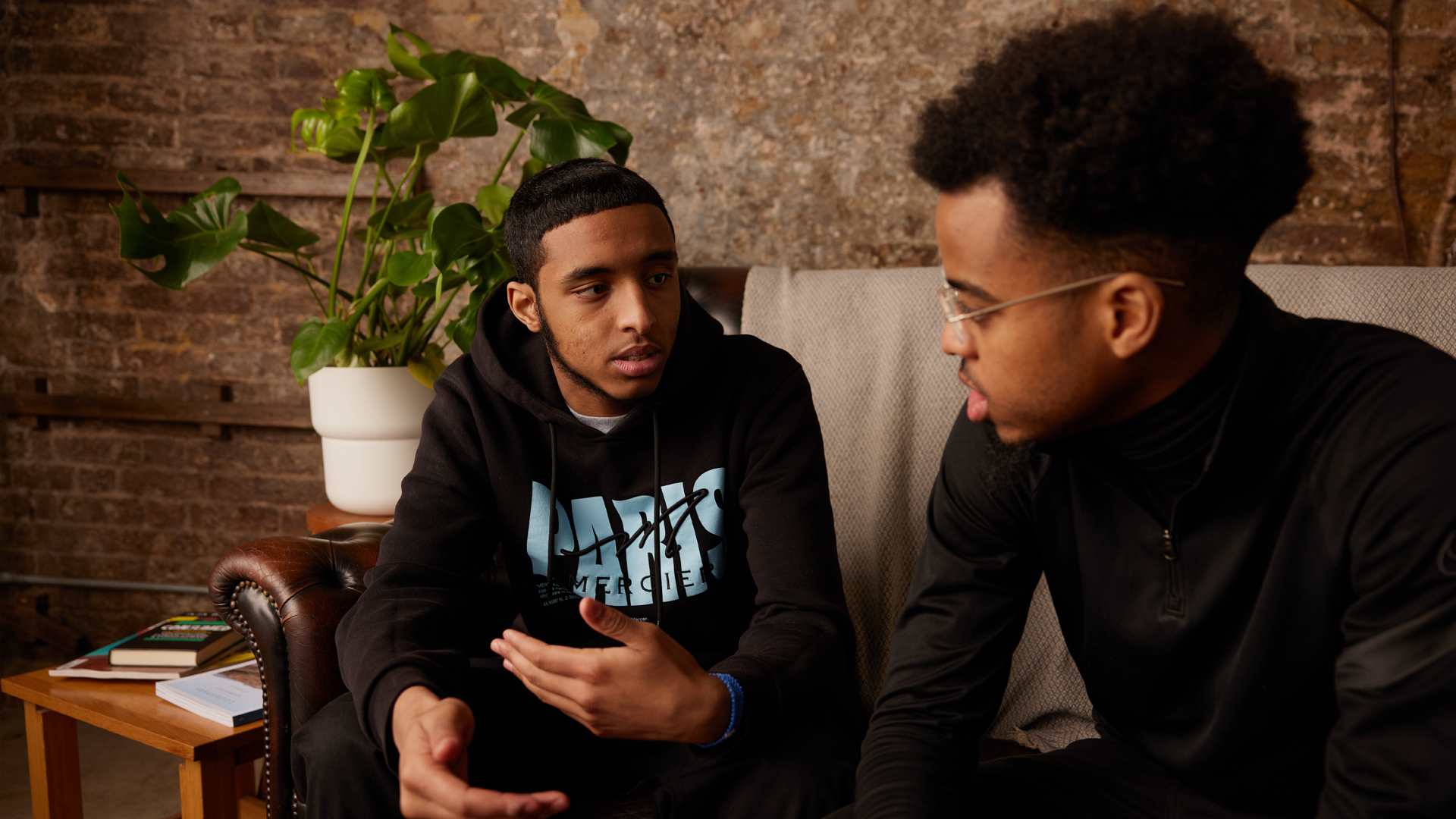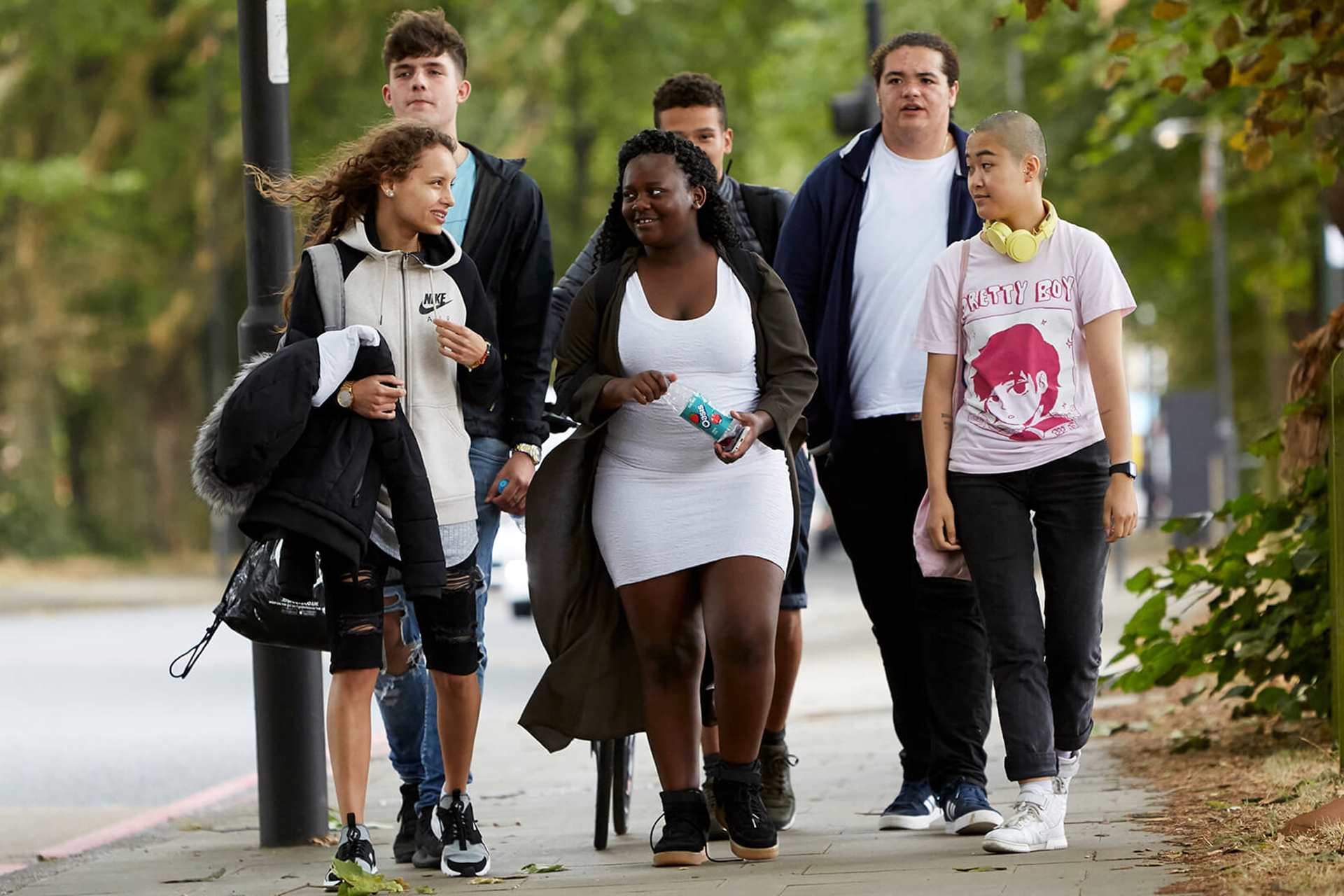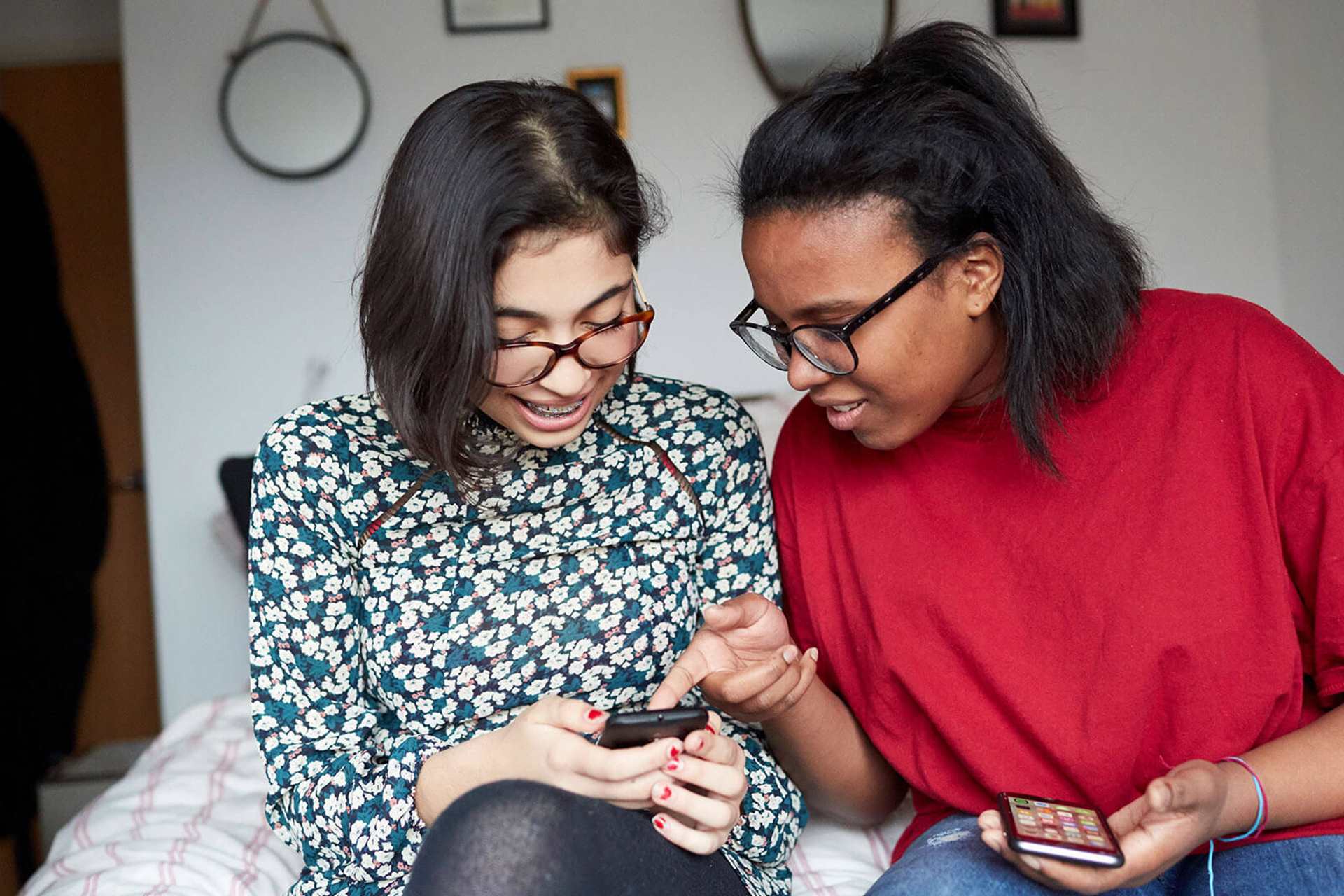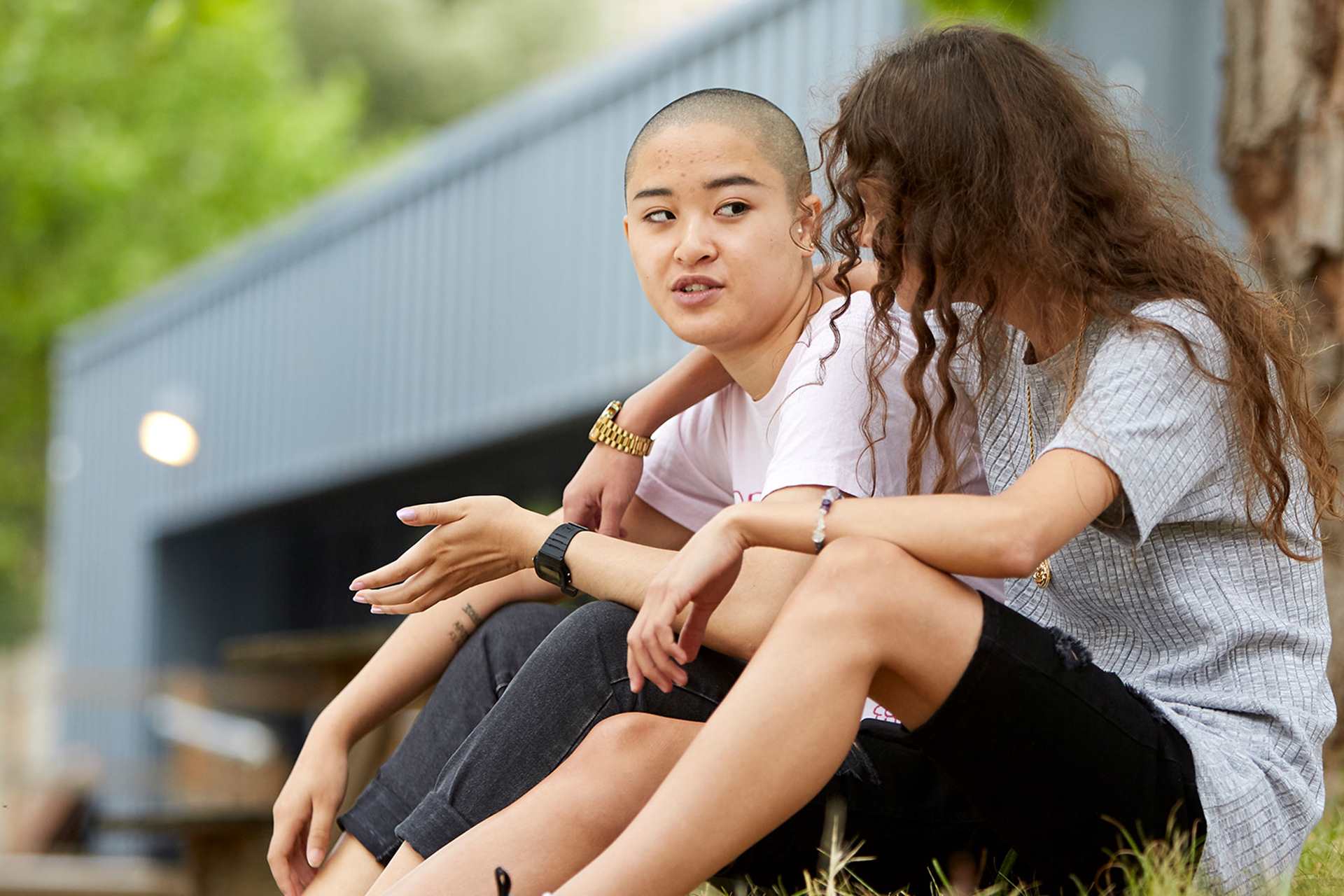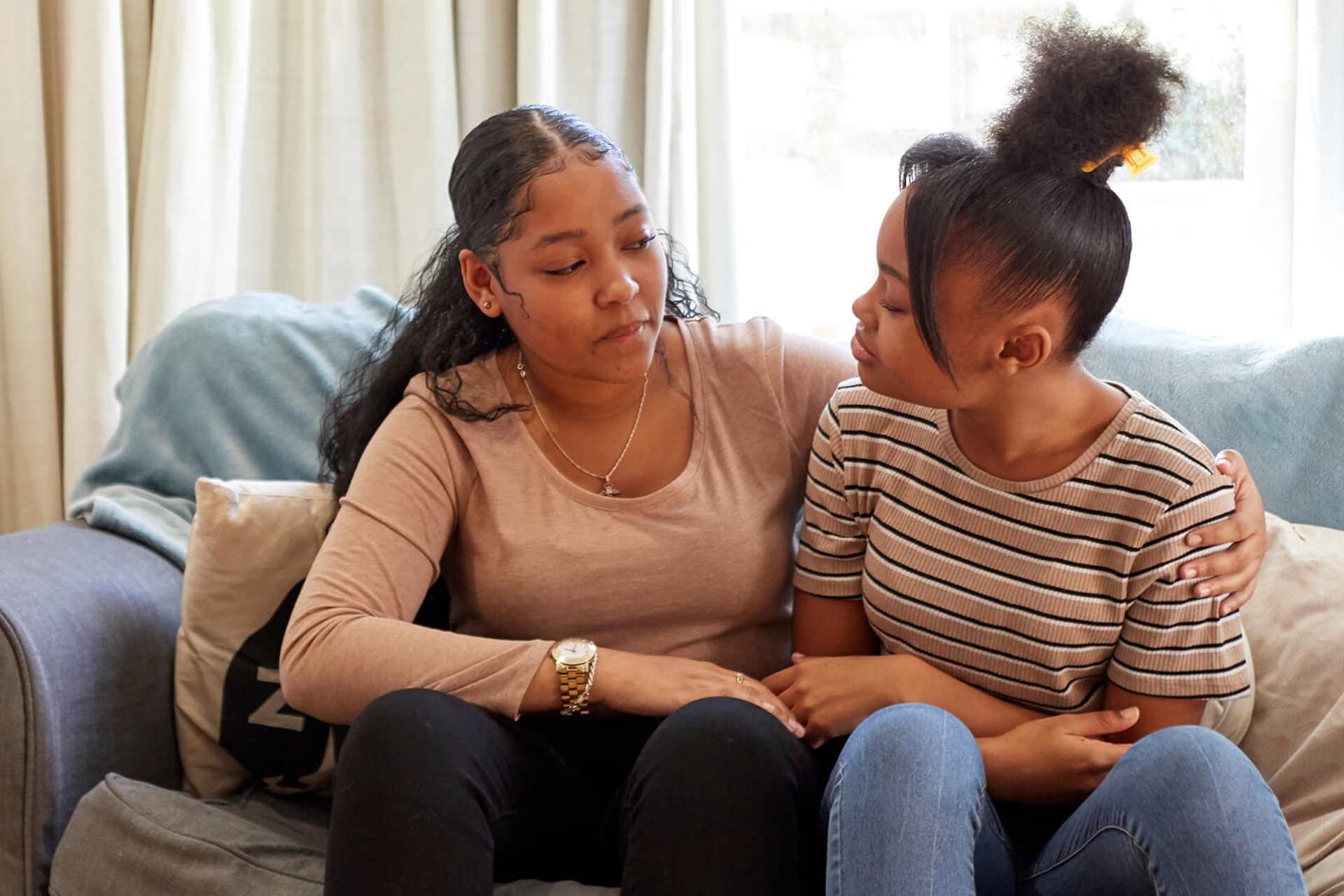Topics mentioned: supporting a friend, friends, family, self-care
About: Hannah, 23, shares her advice on what to do if you're worried about someone's mental health, how to check in with your friend, and look after yourself too.
Some might not show any signs that they’re experiencing poor mental health - it’s not always obvious from the outside.
Picture this: your friend says that they’re having a hard time. You really want to be there for them, but you just don’t know how. Or you’ve noticed a friend or family member hasn’t been their usual self lately. They might want to be alone or seem unhappy.
But some might not show any signs that they’re experiencing poor mental health - it’s not always obvious from the outside. Either way, you know something’s up and you don’t want to ignore it. But you also don’t want to say the wrong thing because you fear you could make things worse.
Sound familiar?
You’re not alone. Here are a few tips I hope will help you and your loved ones if they choose to confide in you, and you feel able to support them.
Asking 'you alright?' is also like another way of saying hello, so it can sometimes take asking twice to get the real answer.
Where to start
To help someone open up, they have to feel safe. They need to know they can trust you and won’t be judged. You can help by choosing the right place and time to check in with them.
Your friend might prefer talking to you in a private place. Some prefer chatting in a car, so they don’t have to make eye contact, which can feel scary when talking about something personal.
Reassure them that the conversation will stay between the two of you (with some exceptions, such as if emergency services are required).
One tip from Roman Kemp’s BBC documentary ‘Our Silent Emergency’ is asking your friends if they’re okay twice. Asking “you alright?” is also like another way of saying hello, so it can sometimes take asking twice to get the real answer.
A good alternative is to ask: “What’s going on for you today?”
If they bring something up, you can ask if they’d like to talk about it further.
You can show you’ve understood by repeating parts back to them and validating what they say.
How to respond
I cannot stress enough the importance of actively listening. Sometimes people don’t even want a response from you, they just wish to vent (with your consent) and know that you are listening.
You can show you’ve understood by repeating parts back to them and validating what they say with phrases like, “that must be really hard”.
Mind and Scottish Association for Mental Health (SAMH)’s Conversations in the Community course suggests following up with open-ended questions.
These are questions like:
- "What's that like for you?"
- "What's the most important thing you'd like to get off your chest?"
Don’t disrespect anyone’s boundaries. No one owes you an explanation if they choose not to share something with you.
What NOT to do
Although your heart is in the right place, your friend might not want advice, especially if they haven’t asked for it. They may not want you to ‘fix it’.
If you’re unsure, ask them if they'd like to come up with ideas together and think about what usually makes them feel better.
There’s always more to someone than what you can see. If they’re experiencing anxiety, comments such as “don’t worry”, “calm down”, or “just relax” feel dismissive. Similarly, comments like “cheer up” or “look on the bright side” won’t help someone living with depression.
We don’t have to be experiencing a major life change, traumatic event or grief to struggle with our mental health. Lots of different things can affect someone, like loneliness, stress or low self-worth. All reasons are valid.
Try not to compare or play “who has it worse?" Although it’s comforting to know someone else is going through something similar, right now they need space to talk about what’s going on with them.
Don’t disrespect anyone’s boundaries. No one owes you an explanation if they choose not to share something with you. Some will confide in those closest to them, and others find it easier to tell people they don’t know. For some, just knowing they can talk to you when they need to is enough.
Don’t overextend your support to others or disregard yourself. Setting your own boundaries is important to care for your own mental health too.
If you make a mistake, it’s okay. We won’t always get it right first time. You can apologise and ask if there is anything you can do differently to help.

What to be aware of
- It may be difficult for your friend or family to share. Remember to thank them for trusting you.
- Everyone has different experiences with mental health. One person’s experience of anxiety may be totally different from another person's.
- There’s no one-size-fits-all support for mental health. Everybody has their own preference and what helps them.
- Mental health problems can affect anyone. However, people can face different stigmas and barriers, like being told to “man up” or not being able to afford therapy.
- You can encourage hope by offering to help them look for extra support if they’d like it. This could be mental health professionals, support groups, services, or free online resources.
Remember to thank them for trusting you.
More information and advice
We have tips and advice to help you find the support you need. Take a look at our guides.
Where to get help
However you're feeling, there are people who can help you if you are struggling. Here are some services that can support you.
-
Mind
Offers advocacy services, as well as information and signposting on mental health difficulties, via the Mind Infoline.
Also hosts Side by Side, an online community for those aged 18 and over to connect with others who are going through, or have been through, similar experiences.
- Opening times:
- 9am - 6pm, Monday to Friday (except for bank holidays)
-
Childline
If you’re under 19 you can confidentially call, chat online or email about any problem big or small.
Sign up for a free Childline locker (real name or email address not needed) to use their free 1-2-1 counsellor chat and email support service.
Can provide a BSL interpreter if you are deaf or hearing-impaired.
Hosts online message boards where you can share your experiences, have fun and get support from other young people in similar situations.
- Opening times:
- 24/7
